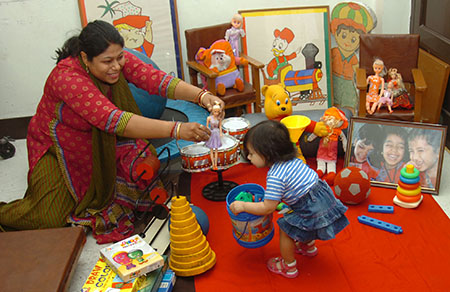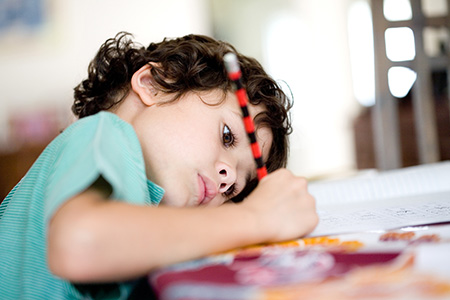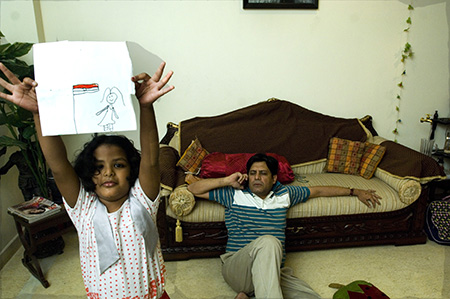Parents often cannot differentiate between regular stress and depression at this age. Dr Smita Pandey, a Gurgaon-based psychiatrist, says that most teenagers display the same symptoms of depression—being quiet, isolated and lethargic—as adults. If symptoms persist for more than two weeks, psychiatric help must be sought.
Doctors even counsel parents, teachers and friends these days. For children in the 7-12 age-group, Cognitive Behavioural Therapy (CBT) is widely used.
CBT is based on the premise that people with depression have cognitive distortion in their views of themselves, the world and the future. Children in the 7-12 age-group tend to misinterpret and distort events, blame themselves and feel guilty and angry with themselves. CBT focuses on changing these distortions by providing constant moral and emotional support. “We have to make the children realise the flaw in their thinking pattern,” says Roy. “CBT is the most effective therapy for this age group, with 65 per cent success rate.”
For younger children who cannot express their emotions, therapists use painting therapy and play therapy. In the latter, various toys are used to analyse children’s moods and to calm them down.
Medication is generally not recommended for young children. Research has shown an increase in suicides among children who are on anti-depressants. In the last few years, however, researchers have conducted randomised, placebo-controlled studies on children and adolescents. Some newer anti-depressants, specifically the Selective Serotonin Reuptake Inhibitors (SSRIs), have been shown to be safe and efficacious for the short-term treatment of severe and persistent depression in children. “We use anti-depressants only in the case of severe depression when no other therapy works,” says Chavda.
But as prevention is always better than cure, it is important for parents, schools and society to collaborate their efforts to prevent children from falling prey to depression. Of late, schools have taken initiatives to identify children with special needs. Besides a school counsellor, teachers are also being given special training to deal with such children.
“In my school, every sixth month, we hold a training on child psychology for teachers so that they can understand their needs better,” says Dr Shikha Rastogi, principal, World Way International School, Bhopal, and a clinical psychologist. Many schools across the country have also formed peer groups (a group of trained students) who work under the guidance of trained psychologists and help identify depressive children. “Students communicate freely with other students,” says Rastogi. “It helps us counsel them better.”
Some names have been changed.



